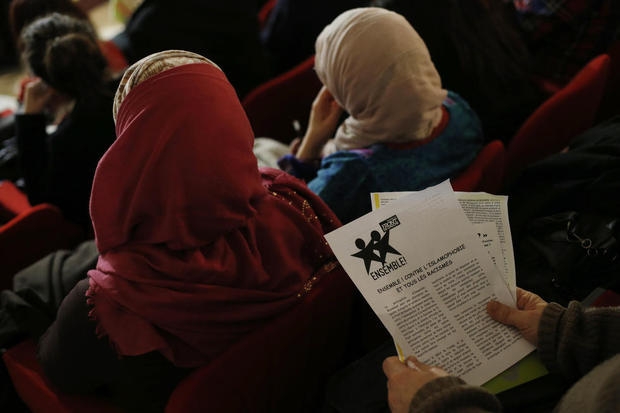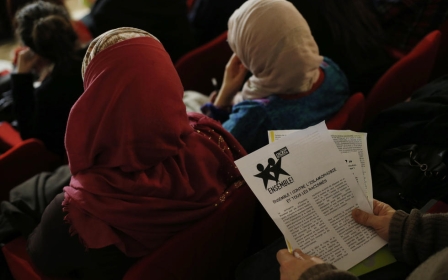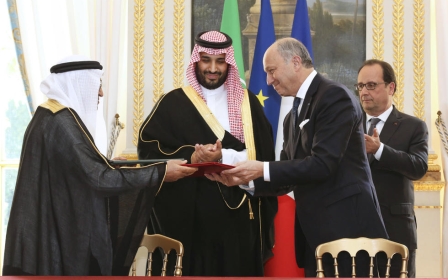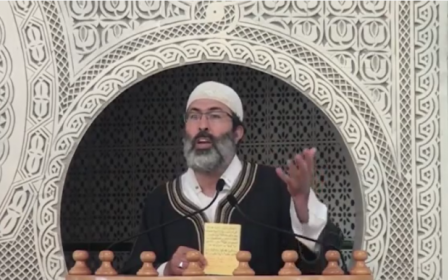France sees rise in Islamophobic attacks post Charlie Hebdo: Report

Less than 10 minutes after a delivery driver, apparently inspired by al-Qaeda or the Islamic State, last month decapitated a man and rammed a company van into a gas factory in Isere near Lyon, tweets started coming in.
Christian Estrosi, the mayor of Nice and a close associate of former French president Nicolas Sarkozy, was one of the first to respond, branding in 140 characters an entire community: “…this dramatic attack in Isere reminds us of the presence of a fifth column in FR [France].”
Nadine Morano, a former minister, quickly followed suit, also denouncing the presence of a “fifth column".
The reference to France’s "enemy within" is not new: during World War II, the same charge was brought against communists who were described as the “eye” of Moscow. It was also used by anti-Semites to designate French Jews as those who did not assimilate and allegedly plotted against society.
It was far right-wing politician Aymeric Chauprade who, after the Charlie Hebdo massacres in January, first applied the term to French Muslims, a million of whom he described as “sympathetic to terrorism”.
In France, the lure of Islamophobia is strong and can be set off by something as trivial as a culinary recipe: last month the Le Marmiton restaurant in Dunkirk received a barrage of hateful and racist comments after publishing "oriental recipes" on its website.
'Denied' racism
But France’s mounting hostility towards Muslims goes beyond words. A report published last week by the Collective Against Islamophobia in France (CCIF), documents a 23.5 percent rise in "Islamophobic acts" - physical assaults, verbal abuse, and damage to property - since the Charlie Hebdo attacks in January.
CCIF’s chairman, Samy Debah, sees the spike in attacks as a sign of a new malaise in France:
“We have never experienced such a large increase in Islamophobic acts in such a short period of time… Mosques have been attacked and very few have been convicted,” he said.
The report contains numerous cases of Islamophobia: a security guard at a Paris airport who was denied work because "his behaviour and morality" did not meet "necessary safety requirements"; a young woman working in a shop in a Paris suburb who was told by her boss, after her contract was abruptly terminated, “I cannot put my team at risk”; a Muslim schoolgirl who was lectured in front of her class by her teacher on the “principles of secularism and France’s wars of religion” because she was wearing a long skirt.
The report also points to another worrying trend: an increase in violence against women.
“Women are more easily identifiable as Muslims because of their veil,” said Debah. “The attacks tend to target the most vulnerable sections of society.”
Some media outlets have questioned CCIF’s methodology, noting that its statistics are higher than those published by the government.
“The Interior Ministry’s statistics are based on complaints made to the police but many victims do not tell the police because relations between the popular neighbourhoods, where many Muslims live, and the police forces are often marred by mistrust,” said Debah, adding that in some cases police have refused to register the complaints or take account of their discriminatory nature.
Though President Francois Hollande has spoken of the dangers of religious discrimination, Debah says, Islamophobia has become a sort of “denied” racism.
“It is much easier to condemn Islam than Islamophobia,” said Debah. “Politicians should have the courage to say that targeting a Muslim equals targeting the fundamental values of the republic. But who has the courage to do so? Ultimately, Muslims do not seek special treatment but a right to be forgotten, to be left in peace at last,” he said.
An election game-changer?
French Prime Minister Manuel Valls said recently that “Islam will be a central issue in the 2017 presidential election”.
Vall’s remarks, which were leaked to the French press, indicate that the election, like others across Europe, is likely to turn on debates over “values and identity”. Soon after the beheading attack in Isère, Valls echoed the controversial thesis of political scientist Samuel Huntington by stating that France was facing a “clash of civilisations”.
For Debah, discussing Muslims and French identity is a convenient way for politicians to shirk from addressing the economy, a strategy that could backfire by bolstering the far-right National Front party.
Other voices in France have risen to declare Islamophobia as a “true French disease”.
In a new book, Who's Charlie? The sociology of a religious crisis, the intellectual Emmanuel Todd refers to a mass demonstration attended by world leaders in Paris after the Charlie Hebdo attack as a “totalitarian flash,” noting the “Islamophobic character” of the event which gathered more than a million from across the county.
In a conference held in Saint-Denis, a city of the Parisian suburbs, Todd said that “the rise of Islamophobia has nothing to do with the problems related to Islam”.
Islamophobia, he said, has become “a need” of French society; a prerogative of the middle classes.
“We have reached 10 percent unemployment and yet the media and politicians only talk about Islam and secularism. This society is going crazy; it has reached a stage of pure delirium,” he said.
New MEE newsletter: Jerusalem Dispatch
Sign up to get the latest insights and analysis on Israel-Palestine, alongside Turkey Unpacked and other MEE newsletters
Middle East Eye delivers independent and unrivalled coverage and analysis of the Middle East, North Africa and beyond. To learn more about republishing this content and the associated fees, please fill out this form. More about MEE can be found here.





